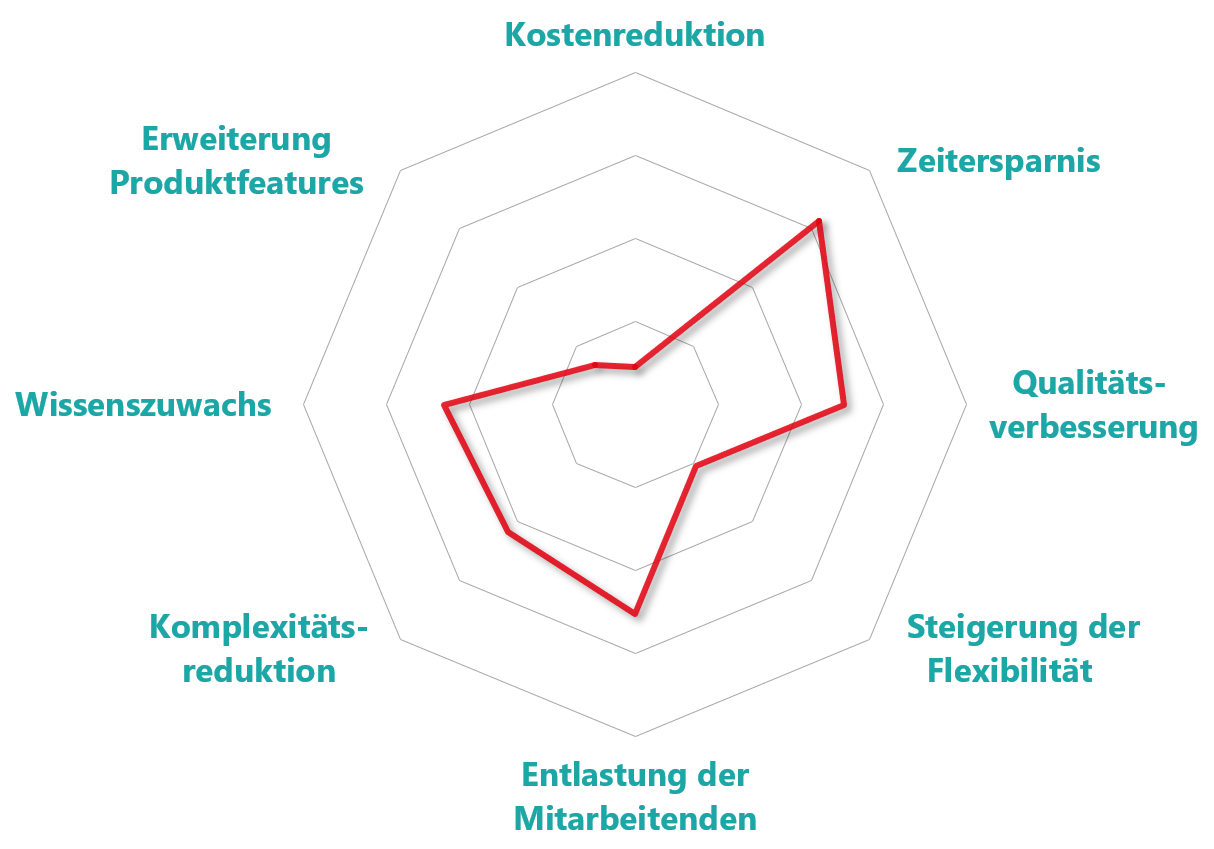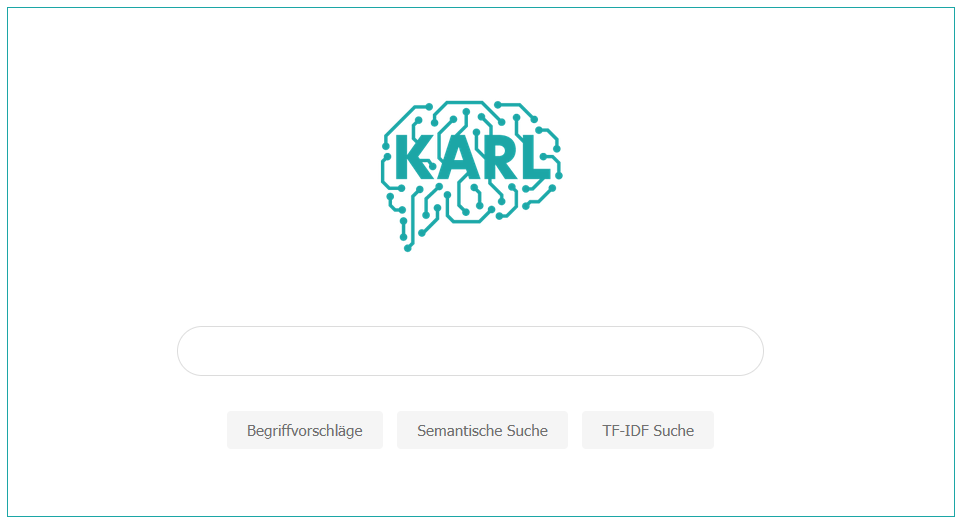Boring routine is a thing of the past - relieving knowledge workers thanks to AI support
Motivation
Currently, word-based and syntactic searches are not only time-consuming but also inefficient. Relevant information is often overlooked because the same search processes have to be repeated again and again: Terms and word combinations have to be precisely defined, searched for and adapted again. If the appropriate terms are unknown, important information remains hidden. The problem often lies in the different spelling of words that are syntactically different but semantically identical.
Objective
The primary goal in this use case is to use AI approaches to expand the existing syntactic search and to demonstrate this using a demonstrator in the form of an online search. This should reduce monotonous, repetitive activities and increase the knowledge gained during the search. Users no longer need to know the exact technical terms to find relevant information. The example of literature research shows how AI approaches can support the search process. The focus is on two central analytical approaches that can also be applied to other areas:
1) Specific analyses: These provide an overview through targeted research in order to identify relevant research focuses or trends.
2) Cross-source analyses: They offer various search methods to find relevant publications and suggest suitable search terms. The semantic search makes it possible to find thematically matching publications using combinations of terms, whole sentences or phrases, even if the exact search terms are not included.
In addition, the integration of an explainability component (XAI) is intended to increase the gain in knowledge by making the AI's decisions more comprehensible. This demonstrator serves as a basis for interaction with potentially interested companies. Building on this, further use cases are to be identified in order to test the transferability of the demonstrator and, if necessary, implement these in cooperation with the companies.
Approach
First, a demonstrator for literature research will be developed to support academic staff in their research activities. Data from various publication websites is used to obtain a significant amount of data for training. In addition, valuable feedback can be obtained through access to numerous scientific collaborators in the KARL project. The appropriate processes are implemented and provided with the help of a requirements analysis. The next step is the development of the explainability component (XAI) and its integration into the demonstrator. The transferability of the underlying concepts is then evaluated. The biggest challenges lie in data procurement and processing, the precise modeling of AI approaches and adapting them to specific areas of application.
Added value
Through the continuous systematic investigation and evaluation of the AI-based assistant, a better understanding of the interaction between AI and knowledge workers is to be created. Access to the information available in companies is expected to be significantly better and easier. The combination of semantic and syntactic search minimizes monotonous search, comparison and selection work considerably. For employees, this means a noticeable reduction in workload, as they can access relevant information more quickly and precisely without having to repeatedly and laboriously adapt search processes.
Boring routine is a thing of the past - relieving knowledge workers thanks to AI support

Motivation
Currently, word-based and syntactic searches are not only time-consuming but also inefficient. Relevant information is often overlooked because the same search processes have to be repeated again and again: Terms and word combinations have to be precisely defined, searched for and adapted again. If the appropriate terms are unknown, important information remains hidden. The problem often lies in the different spelling of words that are syntactically different but semantically identical.
Objective
The primary goal in this use case is to use AI approaches to expand the existing syntactic search and to demonstrate this using a demonstrator in the form of an online search. This should reduce monotonous, repetitive activities and increase the knowledge gained during the search. Users no longer need to know the exact technical terms to find relevant information. The example of literature research shows how AI approaches can support the search process. The focus is on two central analytical approaches that can also be applied to other areas:
1) Specific analyses: These provide an overview through targeted research in order to identify relevant research focuses or trends.
2) Cross-source analyses: They offer various search methods to find relevant publications and suggest suitable search terms. The semantic search makes it possible to find thematically matching publications using combinations of terms, whole sentences or phrases, even if the exact search terms are not included.
In addition, the integration of an explainability component (XAI) is intended to increase the gain in knowledge by making the AI's decisions more comprehensible. This demonstrator serves as a basis for interaction with potentially interested companies. Building on this, further use cases are to be identified in order to test the transferability of the demonstrator and, if necessary, implement these in cooperation with the companies.
Approach
First, a demonstrator for literature research will be developed to support academic staff in their research activities. Data from various publication websites is used to obtain a significant amount of data for training. In addition, valuable feedback can be obtained through access to numerous scientific collaborators in the KARL project. The appropriate processes are implemented and provided with the help of a requirements analysis. The next step is the development of the explainability component (XAI) and its integration into the demonstrator. The transferability of the underlying concepts is then evaluated. The biggest challenges lie in data procurement and processing, the precise modeling of AI approaches and adapting them to specific areas of application.
Added value
Through the continuous systematic investigation and evaluation of the AI-based assistant, a better understanding of the interaction between AI and knowledge workers is to be created. Access to the information available in companies is expected to be significantly better and easier. The combination of semantic and syntactic search minimizes monotonous search, comparison and selection work considerably. For employees, this means a noticeable reduction in workload, as they can access relevant information more quickly and precisely without having to repeatedly and laboriously adapt search processes.

Dr. Sinan Sen
Datalyxt GmbH
sinan.sen@datalyxt.com









